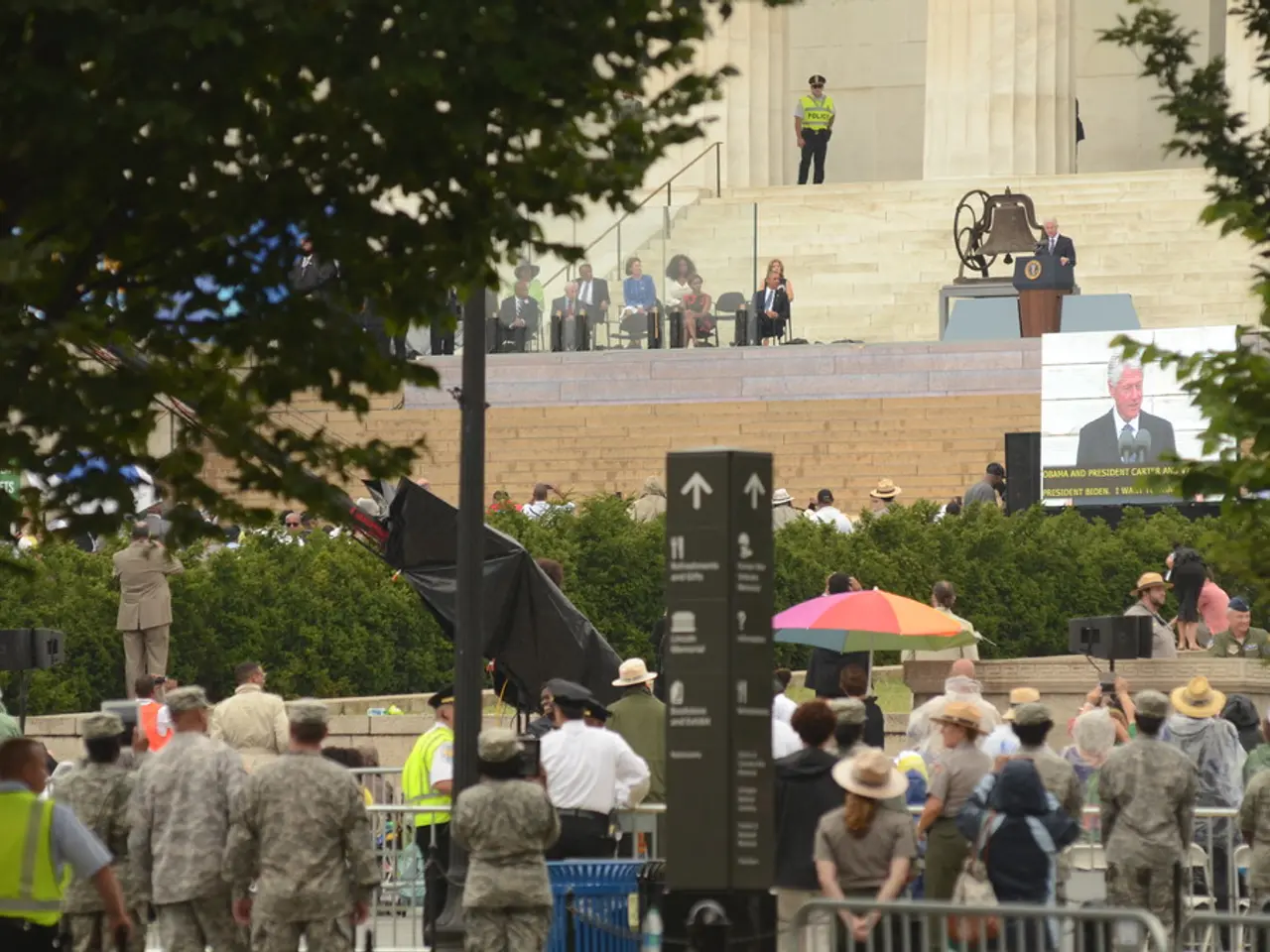Looming IAEA visit could prompt complex negotiations according to Iran's warning
Iran and the International Atomic Energy Agency (IAEA) have resumed talks, marking the first engagement since Iran severed ties with the agency last month. The meeting, scheduled to take place this week, aims to discuss the method of interaction between the two parties.
The current status of Iran-IAEA talks is complex. While formal cooperation is suspended, Iran maintains limited engagement with the IAEA, reflecting a delicate balance between defiance and a need for some level of international nuclear oversight. This situation complicates the monitoring and diplomacy surrounding Iran’s nuclear program.
The suspension followed the IAEA’s May 31 report that Iran breached non-proliferation obligations and preceded Israeli and U.S. strikes on Iranian nuclear sites in June. Iran accuses the IAEA of implicitly enabling those attacks by not condemning them, which led to the legislative suspension of cooperation. However, Iran still recognizes the necessity of inspectors to maintain some level of oversight.
The limited access to nuclear installations impairs independent verification of Iran’s nuclear activities, leading to increased tensions and uncertainty regarding Iran’s nuclear intentions and compliance with the Non-Proliferation Treaty. The suspension also poses challenges for diplomatic efforts, including stalled talks with the U.S., where negotiations are on hold until “maturity” is reached.
Potentially heightened regional instability is another implication of the suspension, as it follows military strikes and signals deep mistrust between Iran, the IAEA, and Western actors.
During the talks, an Iranian delegation including officials from the foreign ministry and the atomic energy organization will meet with Massimo Aparo, the IAEA’s deputy director general and head of safeguards. There are plans for the talks to possibly include a meeting with Iran’s Foreign Minister Abbas Aragchi, but the outcome of the talks is yet to be predicted.
The talks come after the IAEA board declared Iran breached its non-proliferation obligations on June 12. The IAEA had not condemned the bombings of Iranian peaceful facilities during the June war with Israel, a point of criticism raised by Iranian officials.
The IAEA's deputy head, Massimo Aparo, has left Iran after the meeting, but no statement about the visit has been issued by the agency yet.
References: [1] Al Jazeera. (2021, July 12). Iran nuclear talks: What you need to know. Retrieved from https://www.aljazeera.com/news/2021/7/12/iran-nuclear-talks-what-you-need-to-know [2] Reuters. (2021, July 12). Iran, IAEA to hold talks this week to discuss nuclear program: diplomats. Retrieved from https://www.reuters.com/world/middle-east/iran-iaea-hold-talks-this-week-discuss-nuclear-program-diplomats-2021-07-12/ [3] BBC News. (2021, July 12). Iran-IAEA talks: What's at stake in the nuclear showdown. Retrieved from https://www.bbc.com/news/world-middle-east-57698362
Amid the complicated political landscape and war-and-conflicts, the Iran-IAEA talks are of significant general-news value. The suspension of formal cooperation between Iran and the IAEA, following Iran's accusations of implicit enabling of attacks and the breach of non-proliferation obligations, has created uncertainties and challenges in nuclear monitoring, diplomacy, and regional stability.








